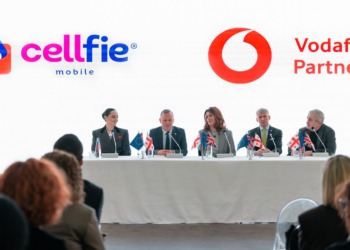The FDA increased the list of toxic hand sanitizers. Earlier this month, FDA has seen a sharp increase in hand sanitizer products that are labeled to contain ethanol but that have tested positive for methanol contamination. Methanol, or wood alcohol, is a substance that can be toxic when absorbed through the skin or ingested and can be life-threatening when ingested. FDA remains vigilant and will continue to take action when quality issues arise with hand sanitizers.
The Food and Drug Administration has expanded the list of hand sanitizers — some sold at Walmart, Costco and other national chains — being recalled to at least 77 recently, saying toxic levels of wood alcohol in them can cause injury or death. The demand for hand sanitizer has surged and questionable new brands have made their way to store shelves across the United States, most imported from Mexico, NBC News reported.
Earlier this month, FDA warned consumers and health care providers that the agency has seen a sharp increase in hand sanitizer products that are labeled to contain ethanol (also known as ethyl alcohol) but that have tested positive for methanol contamination. Methanol, or wood alcohol, is a substance that can be toxic when absorbed through the skin or ingested and can be life-threatening when ingested.
“Methanol is not an acceptable active ingredient for hand sanitizers and must not be used due to its toxic effects. FDA’s investigation of methanol in certain hand sanitizers is ongoing. Consumers who have been exposed to hand sanitizer containing methanol and are experiencing symptoms should seek immediate treatment for potential reversal of toxic effects of methanol poisoning,” The Food and Drug Administration stated.
FDA reminds consumers to wash their hands often with soap and water for at least 20 seconds, especially after going to the bathroom; before eating; and after coughing, sneezing, or blowing one’s nose. If soap and water are not readily available, the Centers for Disease Control and Prevention (CDC) recommend consumers use an alcohol-based hand sanitizer that contains at least 60 percent ethanol (also referred to as ethyl alcohol).
Also, there is currently no evidence that consumer antiseptic wash products (also known as antibacterial soaps) are any more effective at preventing illness than washing with plain soap and water. In fact, some data suggests that antibacterial ingredients could do more harm than good in the long-term and more research is needed.
Initial symptoms of methanol poisoning can include headache, nausea and dizziness in the hours immediately after the exposure. More serious symptoms that can develop include blindness and, in some cases, death. Consumers should also be wary of hand sanitizers marked as FDA-approved because the FDA does not approve hand sanitizers, ABC News wrote.
The FDA has recalled hand sanitizers from the companies All-Clean, Eskbiochem, CleanCare, Saniderm, Lavar 70 and Good Gel, which were all manufactured by Mexico-based Eskbiochem SA de CV. Hello Kitty by Sanrio hand sanitizer—which appears to have been sold in bottles shaped like Hello Kitty’s head—were recalled on July 6 for methanol contamination. Born Basic Anti-Bac Hand Sanitizer was recalled for methanol contamination on July 14 and importation from Mexico halted on July 16, according to Forbes.
FDA remains vigilant and will continue to take action when quality issues arise with hand sanitizers. The agency is especially concerned with:
- The dangers of drinking any hand sanitizer under any conditions. While hand sanitizers with possible methanol contamination are more life-threatening than those that are not contaminated, FDA urges consumers not to drink any of these products.
- Certain hand sanitizers that may not contain a sufficient amount of ethyl alcohol or isopropyl alcohol.
- Hand sanitizers that are sold or offered for sale with false and misleading, unproven claims that they can prevent the spread of viruses such as COVID-19, including claims that they can provide prolonged protection (e.g., for up to 24-hours).
- Products that are fraudulently marketed as “FDA-approved” since there are no hand sanitizers approved by FDA.
- Products packaged to appear as drinks, candy or liquor bottles, as well as products marketed as drinks or cocktails because their appearance could result in accidental ingestion or encourage ingestion. Children are particularly at risk with these products since ingesting only a small amount of hand sanitizer may be lethal in a young child.
Coronavirus disease (COVID-19) is an infectious disease caused by a newly discovered coronavirus. At this time, there are no specific vaccines or treatments for COVID-19. However, there are many ongoing clinical trials evaluating potential treatments. Currently, there are 5,444,227 active cases of coronavirus in the world. 10,074,868 people have already recovered.
Synairgen plc, the respiratory drug discovery and development company which originated from research at the University of Southampton, is pleased to announce positive results from its clinical trial of SNG001, its wholly-owned inhaled formulation of interferon beta, in hospitalised COVID-19 patients. Researchers have announced the results of an initial trial which found the odds of Covid-19 patients not needing ventilation, or dying, while being treated in hospital were 79% better among those given SNG001 compared with those given a placebo. Read more.
Face shields became popular, but can they protect us from coronavirus?

































Discussion about this post